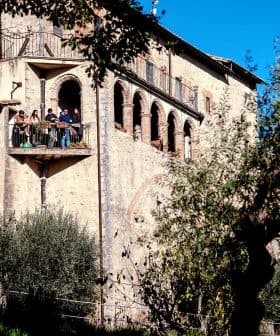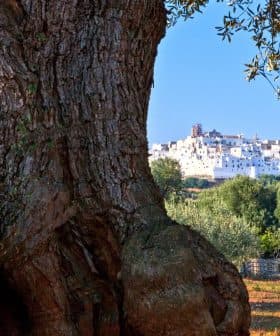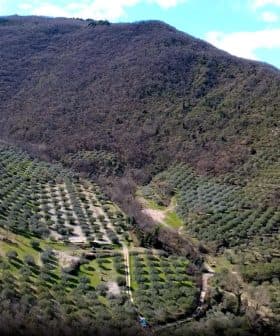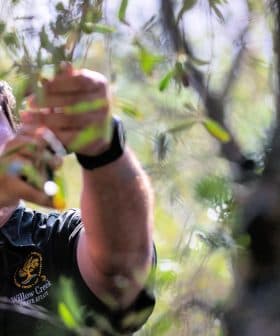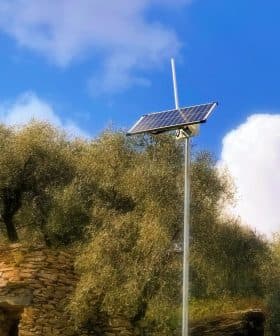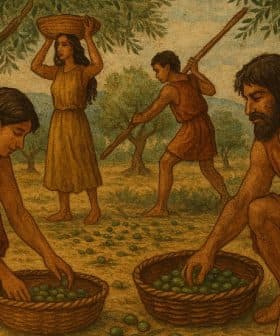Al Piglio Seeks to Tap Potential of Frosinone’s Understated Terroir
An hour outside Rome, Frosinone is not widely known for olive oil production. Al Piglio hopes to change that with its World Competition win.
 In the space of three years, Al Piglio transformed six hectares of neglected olive groves into an award-winning extra virgin olive oil brand. (Photo: Al Piglio)
In the space of three years, Al Piglio transformed six hectares of neglected olive groves into an award-winning extra virgin olive oil brand. (Photo: Al Piglio) Elisabetta Petrini and her family have transformed ancient olive groves in central Italy into an award-winning extra virgin olive oil operation, earning a Silver Award for their Mezzogiorno brand at the 2024 NYIOOC World Olive Oil Competition. Petrini hopes to continue improving her production process and promoting the unique qualities of local olive varieties to create a true identity in the market.
Over the past three years, Elisabetta Petrini and her family have transformed six hectares of partially neglected ancient olive groves in central Italy into an award-winning extra virgin olive oil operation.
Al Piglio finished the 2023/24 harvest on a high, earning a Silver Award for its Mezzogiorno brand, a medium-intensity organic Moraiolo monovarietal, at the 2024 NYIOOC World Olive Oil Competition.
There’s so much potential here. Growers and the entire production chain need to recognize that much can be achieved. This is a unique territory with a unique heritage.
“We are overjoyed to learn that we have received an award at the NYIOOC World Olive Competition,” she said. “For me, it’s a dream come true.”
The world’s most prestigious quality contest applauded Al Puglio for its tasting sensations of artichoke, fig leaf, olive leaf, black pepper and coffee.
See Also:Producer Profiles“After studying as an olive oil sommelier, researching the best ways to manage the production process, and constantly seeking advice from those who are more knowledgeable and skilled, receiving this recognition is not only a great satisfaction but, above all, a motivation to seek improvement continuously,” Petrini added.
Along with Moraiolo, Al Piglio grows Rosciola and Leccino olives in the province of Frosinone, about 55 kilometers east of Rome.
“Rosciola is a beautiful local cultivar that thrives in our rocky hills,” Petrini said. “It has many unique characteristics and is subject to early harvest because it ripens earlier than the other olive varieties we grow.”
Apart from a handful of exceptions, the region around Piglia in northern Frosinone is not known for producing extra virgin olive oil.
“This was the first challenge we faced,” Petrini said. “The local olive oil culture, rooted in ancient practices, does not typically prioritize quality as we understand it today.”
As in many other regions of the country, a significant number of small olive groves in the area are family-owned. When productive, these groves are primarily used for the family’s own consumption. Pruning, fertilizing and harvesting often follow methods passed down through generations.
“When I told the locals that we wanted to harvest Rosciola first, meaning in early October, some were incredulous,” Petrini said. “Most of them are accustomed to harvesting in December.”
Finding the right partner for milling the olives also proved challenging. “Most mills here would only open at the end of October,” Petrini said. “We had to look elsewhere and found the right mills in the Colline Pontine area.”
It takes Petrini 30 to 45 minutes to transport the olives from the grove to the mill. However, she hopes that her recent success at the World Competition will encourage mills to start opening earlier in the season.
“Look at Rosciola and other local cultivars,” Petrini said. “There’s so much potential here. Growers and the entire production chain need to recognize that much can be achieved. This is a unique territory with a unique heritage.”
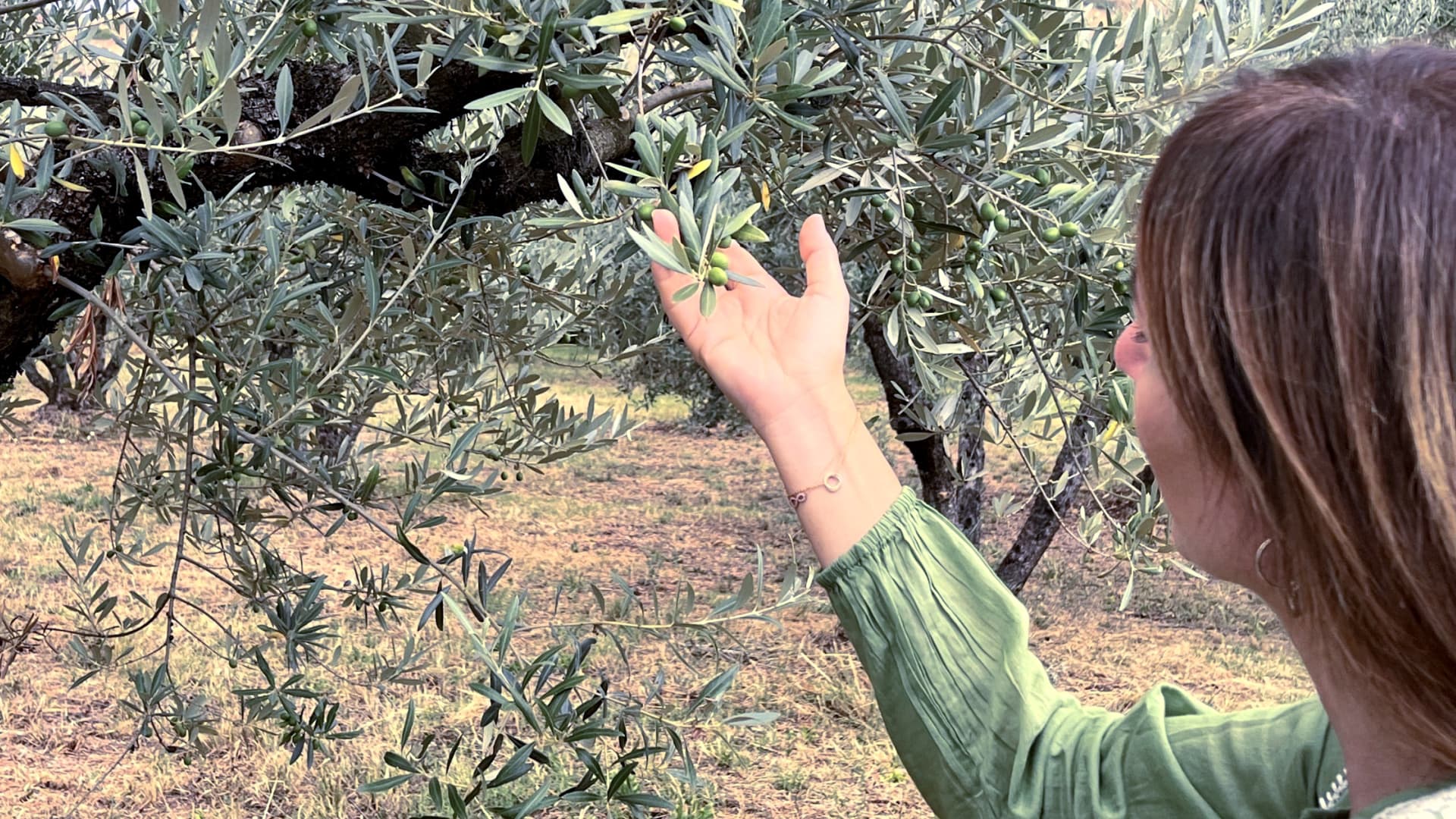
Petrini hopes her World Competition win encourages more producers in Frosinone to embrace an early harvest. (Photo: Al Piglio)
This awareness is also reflected in the touristic venue Petrini and her family have built around their olive groves and vineyards.
“When our guests stay overnight in our suites or come for dinner at our restaurant, we provide them with a list of extra virgin olive oils from all over Italy,” she said. “Moreover, we discuss extra virgin olive oil quality and characteristics with them.”
“Together, we taste three excellent olive oils to help them discern the differences between the regions they represent,” Petrini added.
At the table, Al Piglio customers find a bottle of the farm’s extra virgin olive oil to use as they wish. “I learned this in Spain, where high-profile restaurants always present their customers with a bottle of high-quality extra virgin olive oil ready to use,” Petrini said.
For Al Piglio, this year’s NYIOOC award caps off a successful season. “I must say, this campaign was probably a bit better for us than most in the region,” Petrini said. “In our case, the last season was better than the one before.”
According to Petrini, climate change poses one of the most significant challenges for high-quality olive oil producers in the long term.
“We can’t reverse certain dynamics, but we can try to adapt and mitigate the impact, finding the best solutions to continue improving our agricultural practices,” she said.
This is also why Al Piglio was founded with sustainability in mind. “Thanks to my background in the energy sector, adopting a photovoltaic energy production infrastructure that covers all our needs came naturally,” Petrini said, noting other sustainable choices, including not using any plastic.
“Beyond climate change, a major challenge for this region, and probably for all of Italy, is to carve out a true identity in the market,” Petrini said. “This country’s biodiversity is unparalleled, especially when it comes to olives.”
“The diversity, quality and uniqueness of the products we can offer in Italy are unmatched by any other country,” she concluded. “We should be more aware of this and value it at levels previously reserved only for wine.”
Share this article


